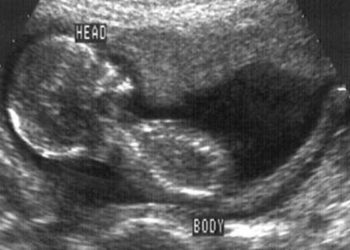Racial differences noted in Autism care
Image: PD
1. Nonwhite children with autism spectrum disorders (ASD), in comparison to white children with ASD, were less likely to see subspecialist providers and undergo evaluative procedures in neurology, gastroenterology/nutrition, and psychiatry/psychology.
2. Racial differences in subspecialty care noted between nonwhite and white children with ASD persisted after correction for gender, age, and insurance type.
Evidence Rating Level: 2 (Good)
Study Rundown: ASD encompasses a range of neurodevelopmental disorders with specific deficits in communication, social interactions, and stereotyped or restricted behaviors. There is a higher prevalence of comorbid medication conditions among children diagnosed with ASD when compared to the general pediatric population, often requiring referral to subspecialists. Three of the commonly utilized subspecialties by ASD patients include neurology, gastroenterology/nutrition, and psychiatry/psychology. The current study evaluated racial differences with respect to subspecialty use in these areas. Researchers found that nonwhite children with ASD were less likely to see a subspecialist in all 3 areas, were less likely to undergo neurologic testing (EEG, brain MRI, sleep study), gastroenterology procedures (colonoscopy, endoscopy, stool studies), and neuropsychiatric evaluation when compared to their white counterparts. These differences persisted after controlling for gender, age, and insurance type. Though this study was limited to patients from a single academic center, these findings suggest further evaluation of racial disparities in subspecialty care among pediatric ASD patients in order to provide quality and accessible care to those in need.
Click to read the study published today in Pediatrics
Relevant Reading: The Co-Morbidity Burden of Children and Young Adults with Autism Spectrum Disorders
Study Author, Sarabeth Broder-Fingert, MD, talks to 2 Minute Medicine: Department of Pediatrics, MassGeneral Hospital for Children, Harvard Medical School, and Center for Child and Adolescent Health Research and Policy
“We looked at children with a diagnosis of autism who were cared for at MassGeneral and its affiliate practices from 2000-2011. We found that African American and Hispanic children were less likely to use many services related to autism care. The most striking differences were in gastrointestinal care: African American and Hispanic children were both 60% less likely to see a gastroenterologist or to have a colonoscopy or endoscopy. Other differences were also seen in neurology and psychiatry/psychology care. We think it is important to help doctors understand that these disparities exist and to make sure they are looking out for all patients, but especially minority patients, who might need referrals for different issues. It is also critical to make sure all families, regardless of race or ethnicity, are thinking about possible co-occurring conditions in their children with autism and asking their doctors for assistance.”
In-Depth [retrospective analysis]: 3615 patients between 2 and 21 years of age with known ASD (2935 white, 243 Hispanic, 188 African American, 249 other) were identified through the Partners HealthCare System Research Patient Database Repository. Each patient had an International Classification of Diseases, Ninth Revision (ICD-9) code for ASD. 1557 of 3615 children had a total of 13441 subspecialty visits; 29.8% of these visits were African American patients and 36.9% were white patients. After controlling for age, gender, and insurance type, nonwhite children were less likely to see subspecialists in all 3 areas studied when compared to white children (odds ratio) – neurology (African American: 0.52; Hispanic: 0.60), gastroenterology/nutrition (African American: 0.32; Hispanic: 0.32; other 0.56) and psychiatry/psychology (African American: 0.44; Hispanic 0.60; other: 0.62). Significant differences were also noted when comparing access to subspecialty procedures for nonwhite versus white children with ASD; these included neurology (EEG, brain MRI, sleep study), gastrointestinal/nutrition (colonoscopy, endoscopy, stool studies), and neuropsychiatric evaluation.
By Neha Joshi and Leah H. Carr
More from this author: Short term zinc prophylaxis decreases infant diarrhea mortality, Childhood ADHD significantly associated with adult obesity, Even low lead levels associated with decreased reading ability, Immunotherapy shows efficacy for pediatric allergic asthma and rhinitis New pediatric GERD management guidelines released, Quality improvement methods increase adherence to pediatric pneumonia treatment guidelines, Children still hospitalized and treated for ITP despite conservative guidelines, Parent behavior training treats preschoolers at risk for ADHD, AAP supports same-sex marriage and parenting, Low birth weight children show neurobehavioral impairments, Study explores daily iron supplementation in 2- to 5-year-olds, New guidelines for pediatric acute otitis media released
© 2013 2minutemedicine.com. All rights reserved. No works may be reproduced without written consent from 2minutemedicine.com. Disclaimer: We present factual information directly from peer reviewed medical journals. No post should be construed as medical advice and is not intended as such by the authors or by 2minutemedicine.com. PLEASE SEE A HEALTHCARE PROVIDER IN YOUR AREA IF YOU SEEK MEDICAL ADVICE OF ANY SORT. Content is produced in accordance with fair use copyrights solely and strictly for the purpose of teaching, news and criticism. No benefit, monetary or otherwise, is realized by any participants or the owner of this domain.







